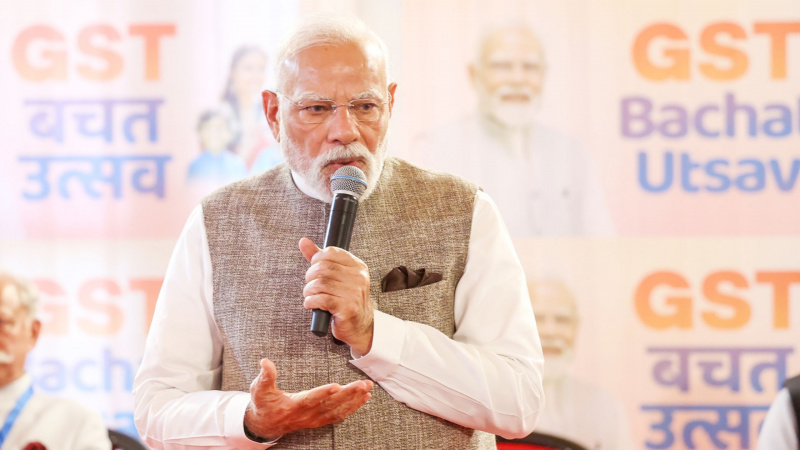India to have double decker luxury buses soon
This will help convince people to avoid private vehicles and will ease traffic congestion on the national highway stretches. The road transport ministry was loo
- by Vandita Jadeja 2017-07-26 11:40:01
In a bid to revamp public transport and to curtail the use of private vehicles, the Union Minister Nitin Gadkari recently spoke about double decker buses to link Delhi-Mumbai, Delhi-Jaipur and Delhi-Ludhiana route. If everything goes as planned, India will have its own line of super deluxe luxury buses which will offer services similar to the airlines.
This will help convince people to avoid private vehicles and will ease traffic congestion on the national highway stretches. The road transport ministry was looking into a proposal to launch the double decker super deluxe buses between important cities, with an aim to decongest traffic. These buses will run on alternative fuel which can be manufactured within the country. There is another plan to construct a separate lane for running the electric trucks and buses on the Delhi-Mumbai corridor, which can also run on diesel inside the city. The buses can run on alternative fuel like electricity, ethanol and methanol. The Government aims to promote clean fuel and cut on the huge import bills that India incurs every year.
This initiative will also help reduce private vehicles. The way the purchase and use of private vehicles are increasing, the Government will have to construct one lane in every three years for the same and this will lead to huge costs. An improvement in the public transport will discourage people from buying vehicles. The minister said that public transport on electricity is a dream. A consultant has been appointed in order to carry out a study of the automobile standards of France, UK, Germany and Sweden. Based on his recommendations, the Government will run vehicles accordingly.
Petrol and diesel cause a lot of pollution which needs to be stopped. Hence, a reform in the transport system is the best way to go ahead. For electric transport, an electric line will be erected. India is an electric and coal surplus country and the government have started 200 electric taxis in Nagpur with 25 charging stations. The use of alternative fuel can reduce the logistic costs by 4% to 6% and help the economic growth. The buses will have separate decks for executive and economy classes. It will also have facilities like food and beverage availability, steward and hostess assistance and recliners. Further, bus ports, based on the model of airports will be created which will serve as dedicated parking bays at the chosen locations for the luxury buses. This will help reduce pollution and also create jobs.
The basic aim is to strengthen the public system in order to provide a solution of vehicular population explosion. It will also allow individuals to enjoy luxury facilities. The Ministry aims to seek assistance from the international financial agencies and the World Bank to support the plan.
POPULAR POSTS
The Agentic Revolution: Why Salesforce Is Betting Its Future on AI Agents
by Shan, 2025-11-05 10:29:23
OpenAI Offers ChatGPT Go Free in India: What’s Behind This Big AI Giveaway?
by Shan, 2025-10-28 12:19:11
Zoho Products: Complete List, Launch Years, and What Each One Does
by Shan, 2025-10-13 12:11:43
Arattai vs WhatsApp: Which Messaging App Should You Choose in 2025?
by Shan, 2025-10-10 11:55:06
Top Buy Now Pay Later (BNPL) Apps for Easy Shopping in 2025
by Shan, 2025-09-22 10:56:23
iPhone 17 Sale in India Begins: Full Price List, Launch Offers and Store Availability
by Shan, 2025-09-19 12:00:45
Apple September 2025 Event Recap: iPhone 17, iPhone Air, Apple Watch Series 11, and India Pricing Revealed
by Shan, 2025-09-10 09:55:45
RECENTLY PUBLISHED

Loan EMIs to Drop as RBI Slashes Repo Rate - Full MPC December 2025 Highlights
- by Shan, 2025-12-05 11:49:44

Pine Labs IPO 2025: Listing Date, Grey Market Premium, and Expert Outlook
- by Shan, 2025-11-05 09:57:07

Top 10 Insurance Companies in India 2026: Life, Health, and General Insurance Leaders Explained
- by Shan, 2025-10-30 10:06:42

Best Silver Investment Platforms for 2025: From CFDs to Digital Vaults Explained
- by Shan, 2025-10-23 12:22:46

Zoho Mail vs Gmail (2025): Which Email Platform Is Best for Businesses, Startups, and Students?
- by Shan, 2025-10-09 12:17:26

PM Modi Launches GST Bachat Utsav: Lower Taxes, More Savings for Every Indian Household
- by Shan, 2025-09-24 12:20:59




 Subscribe now
Subscribe now 